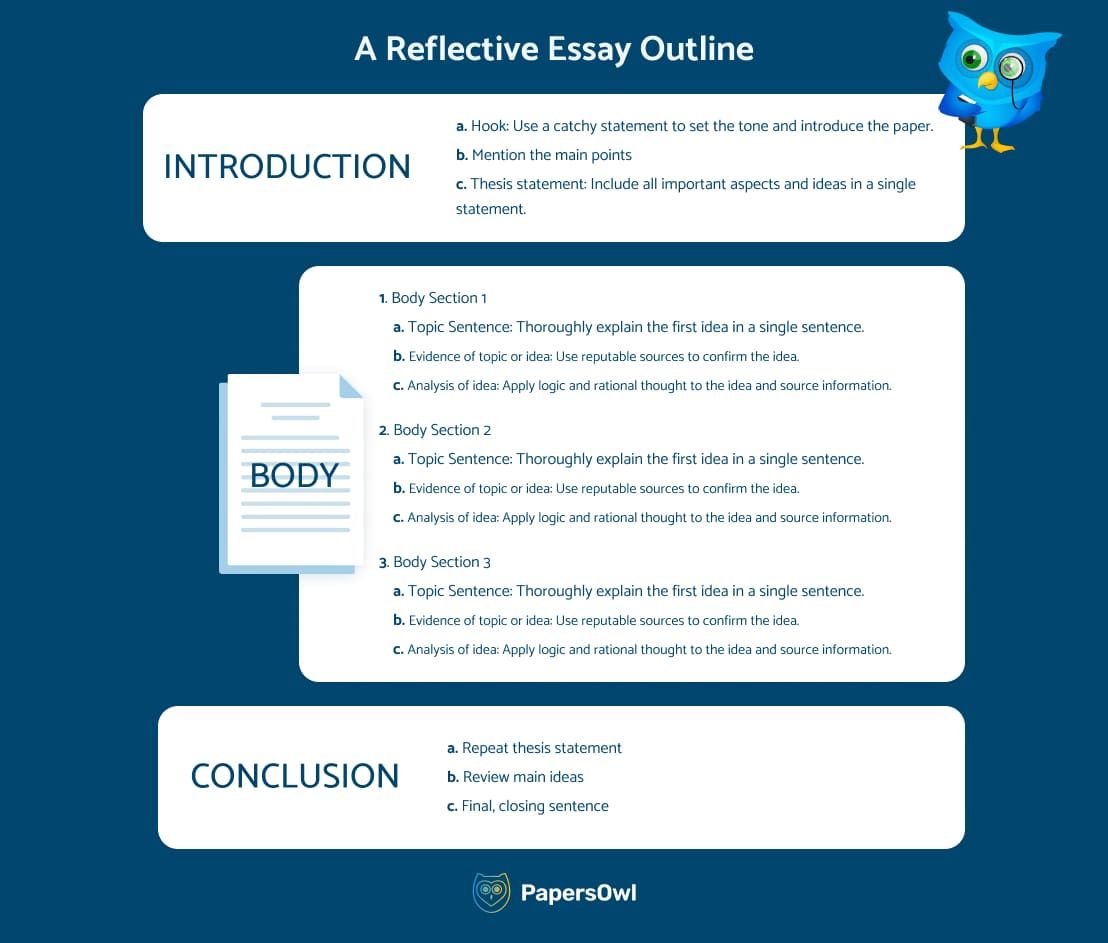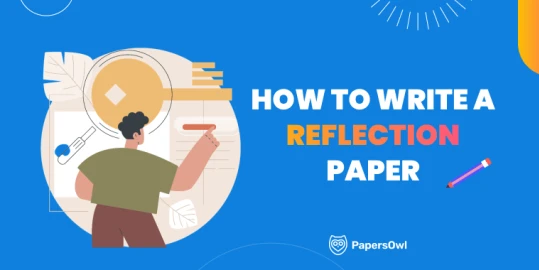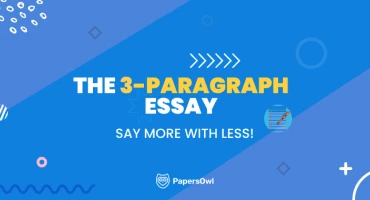Quick Answers to Your Questions:
- Trent University shows that a personal response paper has an introduction, body, and conclusion.
- USC Libraries explains why self-narration works in scholarly writing.
- APA Style details how to format the paper if required.
- Begin with a thesis statement in your introduction to guide the reader.
- When you begin writing, include your own opinion, but keep the tone formal.
- An essay writer service can show cases of how to write a reflection paper for learning.
What Is a Reflection Paper?
A reflection paper is a short paper that connects study with life. It asks you to describe events, think about their meaning, and link them to theory.
This reflective paper is used for critical reflection, experiential reflection, and reflective thinking in class.
It is a common academic assignment that encourages self-oriented learning and personal growth. Thus, students write a reflection paper to connect writing, essays, and life experiences.
Where Are Reflection Papers Assigned?
A reflection paper can appear in many courses, including campus life, practicums, and internships. Students may keep a reflective journal to track progress and link their experiences to academic skills.
Understanding the reflection meaning in writing helps learners connect classroom material with the subject and apply future thinking to their development. Instructors expect students to write a reflection paper that shows growth, incorporates writing practice, and communicates effectively to the reader.
Completing these papers strengthens previous understanding and prepares students for practical practice in their fields. For this reason, critical thinking skills are essential for analyzing experiences and reflecting meaningfully.
Academic but Personal
A reflection paper blends academic writing with personal experience. Writing in the first person is essential to tell your own story while staying formal. You should write reflectively and include impressions, opinions, and your own experiences.
This is why USC Libraries emphasizes how to write a reflective essay in the first person while keeping an academic tone.
Using the first person in reflective writing allows students to express their thoughts, experiences, and learning progress clearly. It makes reflections personal and authentic while maintaining an academic tone.
Studies suggest that first-person narration helps link individual experiences to theoretical concepts, enhancing critical thinking and self-assessment (USC Libraries, n.d.).
So, your essay should show personal insights and thinking connected to the course!
Reflection Paper Structure
Introduction — Context + Thesis
A reflective paper allows you to reflect on personal experiences, connect them to course material, and analyze your learning.
When starting such a paper, it is important to understand the proper reflection paper format.
For example, the introduction sets the stage by providing context and outlining the thesis — the main point you will explore.
Begin by presenting your viewpoints clearly and describing the situation or topic that shaped your insights. Effective writing in this section demonstrates how you plan to write reflectively, showing both comprehension and critical thinking.
The structure should guide the essay logically, helping the paper flow smoothly while keeping the reader engaged.
Body — Description → Interpretation → Evaluation
In the body paragraphs, you demonstrate your personal experience and explain your thoughts.
To understand how to write a reflection paragraph, start each body paragraph by outlining the situation or event. Then analyze what happened and how it influenced your learning, sentiments, or opinion. Include illustrations from your course or an interesting topic to support your points.
If you struggle with organizing concepts, students sometimes look for services that write my paper for me, but the goal is to use these tools to improve your writing and clarify your thoughts.
After describing your experience, add an interpretation by explaining why it was important and what better idea or lesson you gained. Finally, evaluate the experience by connecting it to theory, future practice, or broader learning outcomes.
Besides, each body paragraph should flow logically, linking reflective thinking with concrete illustrations and clear analysis. This method ensures your paper is insightful and well-structured and demonstrates your ability to write reflectively while effectively communicating self-related experiences and comprehension.
Conclusion — Summary + Action Plan
In the summary of your paper, summarize the key points from your reflective writing. Highlight what you have learned and how your thinking has evolved through the experience. How long is a reflection depends on your course requirements; there is no universal rule, so follow your instructor’s guidelines.
Include next steps by outlining how to apply the lessons learned or develop further skills. This helps connect your learning to future experiences.
Keep your writing concise, clear, and focused, ensuring the paper gives the reader a strong understanding of your thoughts. By reflecting critically, you demonstrate the ability to develop your viewpoints, organize your thoughts, and communicate individual growth effectively!

How to Write a Reflection Paper (Step-by-Step)
Understand the Assignment and Rubric
Before you begin, check your course’s instructions and grading guide. This will show you how to start a reflection paper correctly. Look for what the instructor values: individual understanding, use of knowledge, or evidence of new knowledge.
Ask yourself: What does the teacher want me to show?
Ideas students use:
- Write your paper on a single class activity.
- Reflect on a group project.
- Show how your paper connects to learning goals.
- Clarify how the paper helps you identify a skill.
Choose a Central Theme or Insight
The perspectives are stronger when it has one focus. To decide how to write reflection paper, look for a main theme that stood out. It might be an interesting topic, a surprise moment, or a conflict that made you think. This helps your reflective writing stay clear and personal.
Ask yourself: What is one strong viewpoint I gained?
Viewpoints students use:
- Pick a reflection paper theme about teamwork.
- Choose a personal challenge you solved.
- Reflect on writing as a way of thinking.
- Analyze one topic that shaped your view.
Gather Notes, Quotes, and Examples
Do not rely on memory alone — good reflective writing uses real details. Gather short examples, quick viewpoints, and strong material from your subject. Use class notes, teacher feedback, or even outside research. This gives the reader clear evidence.
Ask yourself: What events or texts show my point?
Viewpoints students use:
- A reflection paper about a lab report.
- Analyzing a scene from your practice session.
- Show how you reflect on a mistake.
- Use one story as a sample for reflective writing.
Connect Experience to Theory
Strong papers link personal events to academic concepts. This is the heart of critical reflection. Thus, try to develop your point by showing how your course concepts support your paper. This shows real growth in knowledge and practice.
Ask yourself: How do class theories help me interpret my experience?
Ideas students use:
- A reflection paper about teamwork tied to psychology theory.
- A reflect writing on teaching with lesson design.
- Show how learning a skill is matched by real practice.
- Use theory to support your view of failure or success.
Create a Paragraph Outline
Before you write, sketch a plan. Think about how to start a reflective essay. Decide where your thesis statement belongs and how each body paragraph will follow. Make sure the introduction sets up the ideas. Then build the process step by step.
Ask yourself: Does my outline guide the reader?
Outline sample:
- A reflection paper starts with context.
- Reflect on one event in writing.
- Show insight in a body paragraph.
- End with a clear action plan.
Draft an Engaging Introduction
Your opening sets the tone. Start the paper with a short story, a question, or a fact. Add your thesis in one clear sentence. This shows your personal focus and opinion. Keep it short.
Ask yourself: Does my introduction invite the reader to keep going?
Openers students try:
- Reflect on the first day in class.
- Start the essay with a quote.
- Begin with a problem from the course.
- Add your view of the paper topic.
Write the Body Using DIEP or Gibbs
The body is the core of your reflective paper. Each body paragraph should reveal an event, reflect on it, and add analysis. Use models like DIEP or Gibbs to guide your writing. This helps with clarity and balance. If stuck, check guides on how to craft your perspective essay.
Ask yourself: Does each section link to my personal experience and learning?
Ideas students use:
- Add short examples from daily writing.
- Reflect on a mistake with thinking steps.
- Show how the subject shaped your view.
- Use analysis to test a belief.
Conclude With Key Takeaways and Next Steps
A good ending answers the big question: So what? The summary should highlight key takeaways and your next move. This shows that reflection leads to growth. You can also mention how the course changed your opinion or skills.
Ask yourself: What will I do differently after this?
Ideas students use:
- Personal plan to improve study habits.
- Share how writing helps you develop viewpoints.
- Note how the personal response paper changed your view.
- Add one action to build new learning.
This also answers: what is a reflection essay in practice — it is not only review but also future-focused action.
Revise for Logic, Flow, and Style
Last step: polish. Read your paper aloud. Check if your reflection makes sense and flows. Fix weak writing and replace any wrong answers with a better idea. This will make your reflective writing more powerful.
Ask yourself: Does this process show clear knowledge and strong practice?
Revision checks:
- Cut extra words from writing.
- Ensure each step of reflection fits.
- Replace weak parts with stronger viewpoints.
- Make sure the reader sees growth in the process.
Critical Reflection Techniques (DIEP vs Gibbs)
The DIEP Model (Describe, Interpret, Evaluate, Plan)
The DIEP model is a clear method for a reflection paper. It makes your writing more structured and shows deeper concepts. You move through description, interpretation, evaluation, and planning step by step.
This helps your thinking and analysis become more focused. It also shows how learning links to your own research and practice.
DIEP guiding questions:
- Describe: What happened? What detail matters most?
- Interpret: Why is this event or reading important?
- Evaluate: What worked well or failed? What does this tell you?
- Plan: How will you act or think differently in the future?
This process is simple but powerful. It turns quick notes into reflective writing that shows growth.
Example of a DIEP Paragraph
Here is a short reflection paper example using the DIEP steps.
[D] In the group project, I helped edit slides. I noticed I was more confident speaking than others.
[I] This showed me how I could support peers. I also realized my role in making the group calm.
[E] My biggest success was guiding the discussion. My weakness was not asking enough questions.
[P] Next time, I will invite more voices. This will build stronger teamwork.
This body paragraph shows impressions and learning without losing focus. It keeps the insight short but clear for the reader.
Gibbs Reflective Cycle (6 Stages)
The Gibbs cycle has six steps. It is used for a reflection paper when you want deeper thinking and detailed analysis. Each step builds your writing and links personal moments with sentiments and growth. It works well when your process is long or the task asks for more research.
Gibbs’ guiding questions:
- Description – What happened?
- Feelings – What did you think and feel?
- Evaluation – What was good or bad?
- Analysis – Why did it occur this way?
- Conclusion – What else could you have done?
- Action Plan – What will you do in the future?
This gives students a strong way to link reflection, writing, and learning with theory.
Example of a Gibbs Paragraph
Here is how one body section looks with Gibbs:
I worked with a new student on a math task (Description). I felt nervous because I was unsure if I could interpret clearly (Feelings). The talk went well because I asked simple questions (Evaluation). I learned that asking first helps me guide better (Analysis). I could have given more examples to help with practice (Conclusion). Next time, I will prepare two sample problems before class (Action Plan).
This short model shows the knowledge you gain, what the reader can see about your growth, and how understanding leads to action. It is simple to explore and repeat in longer essays.
DIEP vs Gibbs: When to Use Each (Comparison Table)
Students often ask: Which model fits my reflection paper? Both are useful, but they are two main types of structured writing. DIEP is best for short tasks. Gibbs is stronger for deeper analysis in a longer academic assignment. Use the table below to identify which fits your course.
| Model | When to Use? |
| DIEP | Great for short essays, quick notes, or linking one event to class theory. Works for reflection on readings, small tasks, or fast process writing. |
| Gibbs | Better for the main types of practical course tasks like placements, labs, or clinical work. It fits a full academic assignment with detailed analysis. It also lets you explore each stage in depth. |
Both models show clear growth. The key is matching the tool to the size of your reflection paper.
Templates You Can Copy
Universal Outline Template
If you want a quick plan for a reflection paper, this outline will help. Good reflective writing has a clear outline. It starts with an introduction and ends with a conclusion. Each part should guide your reflection and keep the writing focused.
Template steps:
- Introduction – Open with context and a clear thesis statement. Say what the paper is about.
- Body paragraph 1 – Demonstrate the event and give an interpretation. Show how the material connects to your thoughts.
- Body paragraph 2 – Add your analysis and link it to the theory. Keep the writing clear and logical.
- Conclusion – Summarize the reflection and give a growth plan. Restate your thesis in new phrases.
This works for any short or long essay and shows a solid form for students.
DIEP Paragraph Template
The DIEP model gives you a focused way to build one section. It helps your reflection stay clear in a body paragraph and facilitates your writing step by step. Use it when you want a clean process that blends story with opinion and analysis.
Template form:
- [D] Describe – 1–2 sentences on what occurred.
- [I] Interpret – 2–3 sentences on the event’s meaning.
- [E] Evaluate – 2–3 sentences on what worked or failed.
- [P] Plan – 1–2 sentences on what you will do next.
This shows how you develop a reflection and shape your writing into a strong form. Students often use this to explore one event in detail.
Gibbs Mini-Template
The Gibbs cycle is longer, but this short version works for a reflection paper in class. It keeps your writing simple while using the six parts of reflective thinking. This model works for personal stories and detailed body paragraph examples.
Template form:
- Description – Say what occurred.
- Feelings – Share how you felt.
- Evaluation – State what was good or bad.
- Analysis – Clarify why it happened.
- Conclusion – Sum up what you learned.
- Action Plan – Note what you will do next time.
This structure makes reflective writing clear. It also shows the reader that your reflection paper has grown and taken on a full form.
Examples
This reflection paper comes from a personal experience of volunteering in a food drive.
200-Word Reflection on Volunteering (DIEP Marked)
[D] I joined a local food bank as part of a course project. During two weeks, I helped sort donations and spoke with people who came for support. My impressions were mixed at first. I felt nervous about meeting new people, but also excited to help.
[I] I realized this activity was linked to lessons in social studies. The lack of resources was a problem not just for one subject but for society as a whole. My viewpoints about poverty shifted as I saw how families depend on these programs.
[E] This writing task helps me see that the material we study in class is connected to real needs. My strongest feelings are respect and empathy. Volunteering gave me more awareness than reading alone.
[P] In the next semester, I will apply for another volunteer role. I also want to use this paper to inspire classmates to try. Reflective writing allows me to understand myself better and plan meaningful action.
This reading reflection is based on an article about climate change and education. The writing was clear and used local case studies. At first, my knowledge of school policy was limited, and I felt unsure.
200-Word Reflection on Reading an Article (DIEP Marked)
[D] I read charts, tables, and methods. I took notes on school energy use and budgets. I also compared programs across districts. My reflection paper notebook is filled with facts and questions.
[I] The text gave a new understanding. I reached a deeper view of how class work links to action. My personal reaction moved from worry to resolve. I marked the practical aspects that teachers could try.
[E] My opinion is that sustainability should fit into many classes. My analysis shows small steps add up to larger effects. This reflective writing helped me pair data with values. I will share thoughts with classmates.
[P] I will cite this article and design a mini energy audit for the next task. I will test one idea in class and report the results. Using DIEP made the plan clear. This reading reflection moved me from reading to action.
This long reflection paper combines DIEP and Gibbs. It is based on my teaching practice in a local school.
500–600 Word Reflection on Internship/Practicum (DIEP + Gibbs Marked)
[D] (Description) I worked as a trainee teacher for four weeks during my course. I taught English lessons, helped students with projects, and kept a daily journal. At first, my sentiments were a mix of excitement and anxiety. I had never stood in front of a full class before.
[I] (Interpretation) I realized that teaching is more than presenting a subject. It is about learning to listen, adapt, and build trust. This reflective paper helped me see that students respond best when I connect lessons to their lives. I linked classroom theory with real teaching hours.
[E] (Evaluation) My communication skills improved. I also noticed where I need to grow: classroom management and time planning. I found value in combining reflective writing with daily notes. This gave me a clear thesis for my final report: growth comes from action and revision.
[P] (Plan) In the future, I will attend workshops on teaching strategies, ask mentors for feedback, and apply what I learn.
Gibbs model:
- Description: I taught four English classes.
- Feelings: I felt nervous but curious.
- Evaluation: Some lessons went well, some failed.
- Analysis: Student interest improved with real-life examples.
- Conclusion: I need more practice with discipline.
- Action Plan: Next semester, I will shadow senior teachers.
This reflective writing showed me that my past experiences shaped my teaching style and gave me tools to improve. The conclusion is clear: practice plus reflection equals progress.
Style & Format (APA 7 If Required)
Paper Setup (Margins, Fonts, Spacing)
When you prepare a paper, it must follow clear academic writing rules:
- Use 1-inch margins on all sides, double spacing.
- Apply a readable font like Times New Roman 12pt.
- Limit long sentences to about 20 words.
- Add page numbers and a clear thesis at the top.
According to Purdue University, this setup keeps your format consistent with APA guidelines.
Good reflective writing also clarifies what occurred in your experience and shows how your thinking developed.
When to Use APA Formatting?
Not every reflection paper format requires APA, but many instructors prefer it.
Always check your paper instructions before writing. If your professor asks for APA, add a title page, headers, and references for any sources you cite. Some courses may not require it, so ask before you begin. This shows respect for academic standards and provides clear support for your viewpoints.
Remember: each course may ask for a reflective writing task with a different approach, so adapt as needed.
Length and Word Count — Following Course Guidelines
Students often ask: “How long is a reflection paper?” The answer is that it varies. Your writing should match the paper guidelines for each course.
Some professors ask for one page; others want three. The phrases you use will vary depending on the subject and purpose.
Always read the instructions. Add a short conclusion summarizing your thoughts, even if the assignment is brief.






